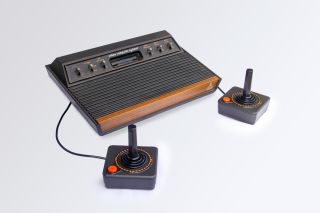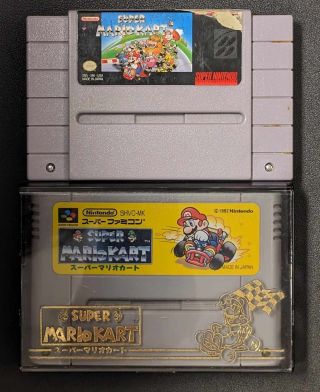Play
Nostalgic Video Games Enhance Family and Familiarity
As gamers age, so has the role of video games in personal and family health.
Updated July 20, 2023 Reviewed by Gary Drevitch
Key points
- Appeals to nostalgia are often mocked, but this ignores the psychological relevance of nostalgia.
- Nostalgia from video games is especially interesting, given the age of the medium and the players.
- Video games serve as "time machines" capable of returning players to a nearly untouched digital past.
- Nostalgic video game memories are often connected to family and friends, improving short-term well-being.

One of the first commercial successes for home video gaming, the Atari 2600 was a revolutionary technology for it's time. Released in 1977, more that 500 cartridges were available for the system, from familiar favorites such as Pac-Man, Pong, and Space Invaders to more obscure titles such as Pepsi Invaders (a clone of Space Invaders commissioned by Coca-Cola in which players blasted the letters P E P S I out of the sky) and E.T. (a game so bad that it nearly collapsed the entire video game industry).
For most, Atari occupies a hallowed placed in the history of video games—celebrated in the 2023 release of Atari 50: The Anniversary Collection. Atari is synonymous with retrogaming, and fans are still releasing games for the console today: Mr. Run and Jump 2600 is accepting pre-orders on July 31st for $59.99.
You read that correctly: A single Atari 2600 game is selling for about the same price as new releases for the Sony PlayStation 5, and even more than the more than 50 games included in the Atari 50 collection. To some, this might seem like a lazy approach to game development—exploiting players' nostalgia for a quick profit. However, such a position ignores the real psychological benefits of nostalgia and video games.
What is nostalgia?
Sedikides et al. (2015) argued that nostalgia is a “predominately positive, social, and past-oriented emotion." The concept has a historical anchoring as a clinical diagnosis—the Greek roots of "nostos" (to return home) and "algos" (pain) were used to describe individuals hopelessly lost in and removed from their own past—but modern understandings have evolved from a strictly clinical approach.
In a recent podcast with the American Psychological Association, Krystine Batcho clarified the evolution of nostalgia from clinical diagnosis to the more functional role of nostalgia in our daily lives. For example, when we feel nostalgia, we feel a sense of connection with our past selves as well as others in our memories. Nostalgia can serve as short-term relief from psychological pain, and can help us navigate turbulence in our lives.
As noted by Batcho and others (Natterer, 2014), there are different types of nostalgia. We can have personal nostalgia for our own autobiographical memories, as well as historical nostalgia for our perceptions of bygone historical eras. To give an example: As a native St. Louisan, I have personal nostalgia for watching the 2011 St. Louis Cardinals win the World Series in person, a lifelong family memory that is invoked nearly every holiday season. By comparison, I have historical nostalgia when I learn about, reflect on, and appreciate the 1926 St. Louis Cardinals winning their first of 11 World Series titles, which reinforces my social identity as a member of Cardinals Nation.
Video games: Not just for kids
Although we might still presume that video games are for children, the demographics of gamers have shifted over the years. According to the Entertainment Software Association, the average age of a gamer is 32 years old and more than 60% of adults play video games on a weekly basis. In other words, many of today's parents were yesterday's gamers.
In addition, we often think of video games as a "new media" when compared to radio, television, and film. However, modern precursors to video games were developed in the 1950s and the first video games based on unique computer programs were developed in the early 1960s. Video games have been part of our broader cultural, social, and economic zeitgeist ever since.
The age of the medium and the age of the players are especially relevant here, as they provide the necessary conditions for which to feel nostalgia. This can be both personal nostalgia for fond memories of video gaming, and historical nostalgia for the history of the medium itself.
Retro games, memories, and moods
Recently, I shared a social media post announcing my latest antiquing victory: an original Nintendo Game Boy in find working condition. The post received an outpouring of commentary from people sharing their own nostalgia. Some were reminded of family rituals and roadtrips, and others were already planning to replicate those rituals for their own children. All were basking in bittersweet memories of the gray-toned, battery-powered, and somewhat clunky system. Again, there are more powerful and higher-quality modern equivalents (including one offered on the Nintendo Switch), but there was an explicit and implicit appeal for returning to and recreating the original experience. In a sense, the nostalgia was more important than the gameplay.

Those memories can be remarkably powerful. From our own data, when people were asked to elaborate on nostalgic video-game memories, they often mentioned family and close friends, even when they weren't prompted to do so (Wulf et al, 2020).
One quote that stuck with me was a participant who wrote: "My dad died when I was 10, so [playing Mario Kart with him] is one of my best memories of him."
In that same study, nostalgic gaming memories were correlated with feeling more connected to people in the present moment, reinforcing the social nature of nostalgia. We saw similar effects on increased vitality and optimism. To be sure, these were not strong effects—connectedness only increased by about 10 percent, vitality by 5 percent, and optimism by about 3 percent—and they are assuredly short-term effects. At the same time, they were the result of simply thinking about and briefly recollecting nostalgic video game memories.
Conclusion
We're only just now untangling the well-being potential of nostalgia and video games (see Bowman & Wulf, 2023). but these early studies establish an empirical record for future research and development. This research comes at a perilous time for retrogames, as 87 percent of all video games ever made are no longer accessible in their original form. That said, emerging evidence suggests that both personal and historical nostalgia can still be triggered when playing older games on newer equipment (Bowman et al, 2022; in press). The emergence of retro-style video games might also help bridge the gap between contemporary and historical gaming experiences. In addition, as gamers age, the marker for what is considered retrogaming will also change: For anyone entering young adulthood today, the video games of the early 2000s are mostly digitized or accessible on modern equipment.
Video games might well challenge the old saying, "you can't go home again." Video games present a unique opportunity to return to bygone experiences relevant to our past and current selves, and that nostalgia should not be so easily dismissed.
References
Bowman, N. D., Velez, J., Wulf, T., Breuer, J., Yoshimura, K., & Resignato, L. (2022). That bygone feeling: Controller ergonomics and nostalgia in video game play. Psychology of Popular Media. https://psycnet.apa.org/doi/10.1037/ppm0000382
Bowman, N. D., & Wulf, T. (2023). Nostalgia in video games. Current Opinions in Psychology. https://doi.org/10.1016/j.copsyc.2022.101544
Bowman, N. D., Yoshimura, K., Bohaty, E., & Condis, M. A. (in press). “Makes me feel like I was born in the wrong era:” Gamer self-efficacy and appreciation are correlated with historical nostalgia when playing a retrogame. Psychology of Popular Media
Natterer, K. (2014). How and why to measure personal and historical nostalgic responses through entertainment media. International Journal on Media Management, 16(3), 161–180. https://doi.org/10.1080/14241277.2014.989567
Sedikides, C., Wildschut, T., Routledge, C., Arndt, J., Hepper, E. G., & Zhou, X. (2015). To nostalgize: Mixing memory with affect and desire. Advances in Experimental Social Psychology, 51, 189–273. https://doi.org/10.1016/bs.aesp.2014.10.001
Wulf, T., Bowman, N. D., Rieger, D., Velez, J., & Breuer, J. (2018). Video games as time machines: Video game nostalgia and the return of old gaming content and technologies. Media and Communication, 6(2), 60-68. https://doi.org/10.17645/mac.v6i2.1317
Wulf, T., Bowman, N. D., Velez, J., & Breuer, J. (2020). Once upon a game: Exploring video game nostalgia and its impact on well-being. Psychology of Popular Media Culture, 9(1), 83-95. https://doi.org/10.1037/ppm0000208




